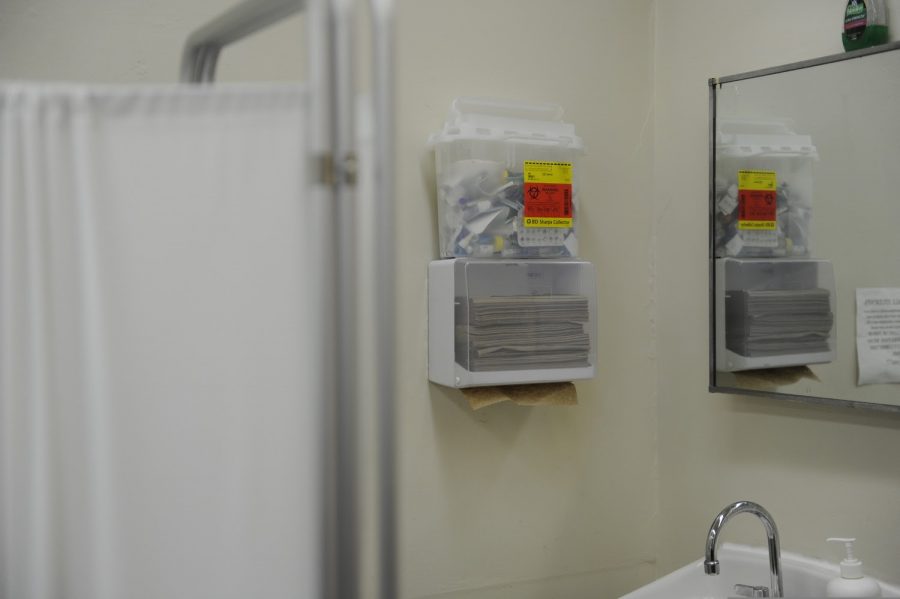Unsung Heroes: America’s Healthcare Professionals
Martyred and worn out, America’s healthcare workers need support.
Cardiac catheterization labs, surgery units, and endoscopy suites have all been converted into intensive care units to meet the increasing amount of inpatients arriving at hospitals across the country.
Life at the frontlines is relentless for healthcare professionals as they switch from one coded patient to the next during the worldwide Coronavirus pandemic. The consistent pressure that these doctors have to deal with has contributed to a rise in stress, which affects their performance.
Young nurses and others alike who have just joined the medical field have begun to realize the gravity of the COVID-19 situation, frustrated as their physical and psychological health both suffer. The World Health Organization has noted the impact that the virus has had on the mental health of healthcare workers who are forced into sleepless nights, due to the lack of personal protective equipment (PPE). Expected to be self-reliant, these workers are not readily accepting assistance from trauma units who seek to lighten their workload. When asked about the situation, Farhan Tanvir ’21 said, “Being a doctor isn’t easy in the slightest, and that’s because they have a monumental responsibility to carry out, and that is to keep saving lives no matter the cost.”
The effects of burnout are clear: as doctors pile on more stress from the indulging mass of COVID-19 inpatients, distress becomes prevalent as they have to make decisions regarding life-saving resources. The passing of Dr. Lorna M. Breen, the emergency medical director of New York-Presbyterian Allen Hospital, has brought more attention to the mental health of doctors in direct contact with the disease. Without guided efforts to help doctors and medical employees recuperate from their weariness, conditions will become worse.
Dr. Rubina Malik, the mother of a Bronx Science student, has expressed her fears as she records her daily interactions with patients. “Everything was up in the air — we did not know what to do in the beginning with these very sick patients. It was only with each passing day that our experiences increased — we found some specific treatments that could help some of the symptoms that patients had.” While Dr. Malik reports that conditions are improving and that her hospital has done its best to use free space, the emotional gravity of the pandemic has had a large impact on her hospital’s working staff. “There was also significant sadness — heartbreak at losing so many patients — young and old. We were the only ones holding the hands of these patients, but we were also scared.”
As the situation unfolds, everyday citizens have come together to address the concerns of doctors under emotional and physical stress. As some have taken to spreading awareness on social media, others have donated masks and other forms of PPE to those who need it most. The Food and Drug Administration urges those who can to give blood, due to the plummeting rates of blood banks at hospitals. Some are even offering food and other support to help raise doctors’ morale. At the end of the day, saying “thank you” might be the least you can do, but even that might just be enough.
New organizations that have sprung up in the wake of the Coronavirus pandemic are urging doctors to accept resources provided for their mental health. ChristianaCare, like other mental health organizations, offers support through text messaging services and group support. As doctors are experiencing frustration from a lack of funding and equipment along with the passing of many helpless patients, organizations like these may be enough to prevent doctors from experiencing mental distress.
With honest efforts from medical centers in dire need for supplies, it is important for us to recognize the extent to which these doctors are sacrificing their livelihood for ours and do what we can to help alleviate their worries. In the words of Dr. Malik, “The most important message is that we need to listen to the experts and do what they say, so that we can save as many lives as possible. Every life is important; everyone is the mother, father, sister, brother, child of someone, and we want to save all of them.”
“There was also significant sadness — heartbreak at losing so many patients — young and old. We were the only ones holding the hands of these patients, but we were also scared.”
Arian Berisha is a Copy Chief for ‘The Science Survey,’ helping with quality control and copy-edits, while also writing for the school's newspaper....
Tyler Pelayo is a Staff Reporter for ‘The Science Survey’ and a Captions Editor for ‘The Observatory.’ Tyler finds the photography lessons in journalism...

